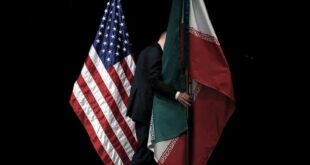 TEHRAN (FNA)- The International Atomic Energy Agency (IAEA) should not be influenced by foreign pressures in its decision making regarding the Iranian nuclear file, particularly by the United States, Iranian Foreign Ministry Spokesman Hassan Qashqavi said Monday.
TEHRAN (FNA)- The International Atomic Energy Agency (IAEA) should not be influenced by foreign pressures in its decision making regarding the Iranian nuclear file, particularly by the United States, Iranian Foreign Ministry Spokesman Hassan Qashqavi said Monday.
“We expect the agency to adopt legal approach toward Iran’s peaceful nuclear program,” Qashqavi said.
“We know that the pressure increases when the issues are going to be resolved. Therefore, we urge the agency to maintain its legal approach in disregard of any foreign pressures,” IRNA quoted Qashqavi as saying.
The IAEA is reportedly to publish its latest report on Iran’s nuclear program as early as Monday afternoon.
Tehran would wait until the report is published, Qashqavi said, adding that Iran is ready to continue cooperation with the UN nuclear watchdog.
Iranian Foreign Minister Manouchehr Mottaki Sunday said Iran continues its sincere and serious cooperation with the IAEA.
IAEA deputy chief Olli Heinonen held two rounds of talks with Iranian officials in August.
Washington and its Western allies accuse Iran of trying to develop nuclear weapons under the cover of a civilian nuclear program, while they have never presented any corroborative document to substantiate their allegations. Iran denies the charges and insists that its nuclear program is for peaceful purposes only.
Tehran stresses that the country has always pursued a civilian path to provide power to the growing number of Iranian population, whose fossil fuel would eventually run dry.
Despite the rules enshrined in the Non-Proliferation Treaty (NPT) entitling every member state, including Iran, to the right of uranium enrichment, Tehran is now under three rounds of UN Security Council sanctions for turning down West’s illegitimate calls to give up its right of uranium enrichment.
Tehran has dismissed West’s demands as politically tainted and illogical, stressing that sanctions and pressures merely consolidate Iranians’ national resolve to continue the path.
Iran insists that it should continue enriching uranium because it needs to provide fuel to a 300-megawatt light-water reactor it is building in the southwestern town of Darkhoveyn as well as its first nuclear power plant in the southern port city of Bushehr.
Iran currently suffers from an electricity shortage that has forced the country into adopting a rationing program by scheduling power outages – of up to two hours a day – across both urban and rural areas.
Iran plans to construct additional nuclear power plants to provide for the electricity needs of its growing population.
The Islamic Republic says that it considers its nuclear case closed as it has come clean of IAEA’s questions and suspicions about its past nuclear activities.
Political observers believe that the United States has remained at loggerheads with Iran mainly over the independent and home-grown nature of Tehran’s nuclear technology, which gives the Islamic Republic the potential to turn into a world power and a role model for other third-world countries. Washington has laid much pressure on Iran to make it give up the most sensitive and advanced part of the technology, which is uranium enrichment, a process used for producing nuclear fuel for power plants.
Washington’s push for additional UN penalties contradicts a recent report by 16 US intelligence bodies that endorsed the civilian nature of Iran’s programs. Following the US National Intelligence Estimate (NIE) and similar reports by the IAEA head – one in November and the other one in February – which praised Iran’s truthfulness about key aspects of its past nuclear activities and announced settlement of outstanding issues with Tehran, any effort to impose further sanctions on Iran seems to be completely irrational.
The February report by the UN nuclear watchdog, the International Atomic Energy Agency, praised Iran’s cooperation in clearing up all of the past questions over its nuclear program, vindicating Iran’s nuclear program and leaving no justification for any new UN sanctions.
The UN nuclear watchdog has also carried out at least 14 surprise inspections of Iran’s nuclear sites so far, but found nothing to support West’s allegations.
The Vienna-based UN nuclear watchdog continues snap inspections of Iranian nuclear sites and has reported that all “declared nuclear material in Iran has been accounted for, and therefore such material is not diverted to prohibited activities.”
Observers believe that the shift of policy by the White House to send William Burns – the third highest-ranking diplomat in the US – to the latest round of Iran-West talks happened after Bush’s attempt to rally international pressure against Iran lost steam due to the growing international vigilance.
US President George W. Bush finished a tour of the Middle East in winter to gain the consensus of his Arab allies to unite against Iran.
But hosting officials of the regional nations dismissed Bush’s allegations, describing Tehran as a good friend of their countries.
Many world nations have called the UN Security Council pressure against Iran unjustified, especially in the wake of recent IAEA reports, stressing that Tehran’s case should be normalized and returned to the UN nuclear watchdog due to the Islamic Republic’s increased cooperation with the agency.
 Eurasia Press & News
Eurasia Press & News

